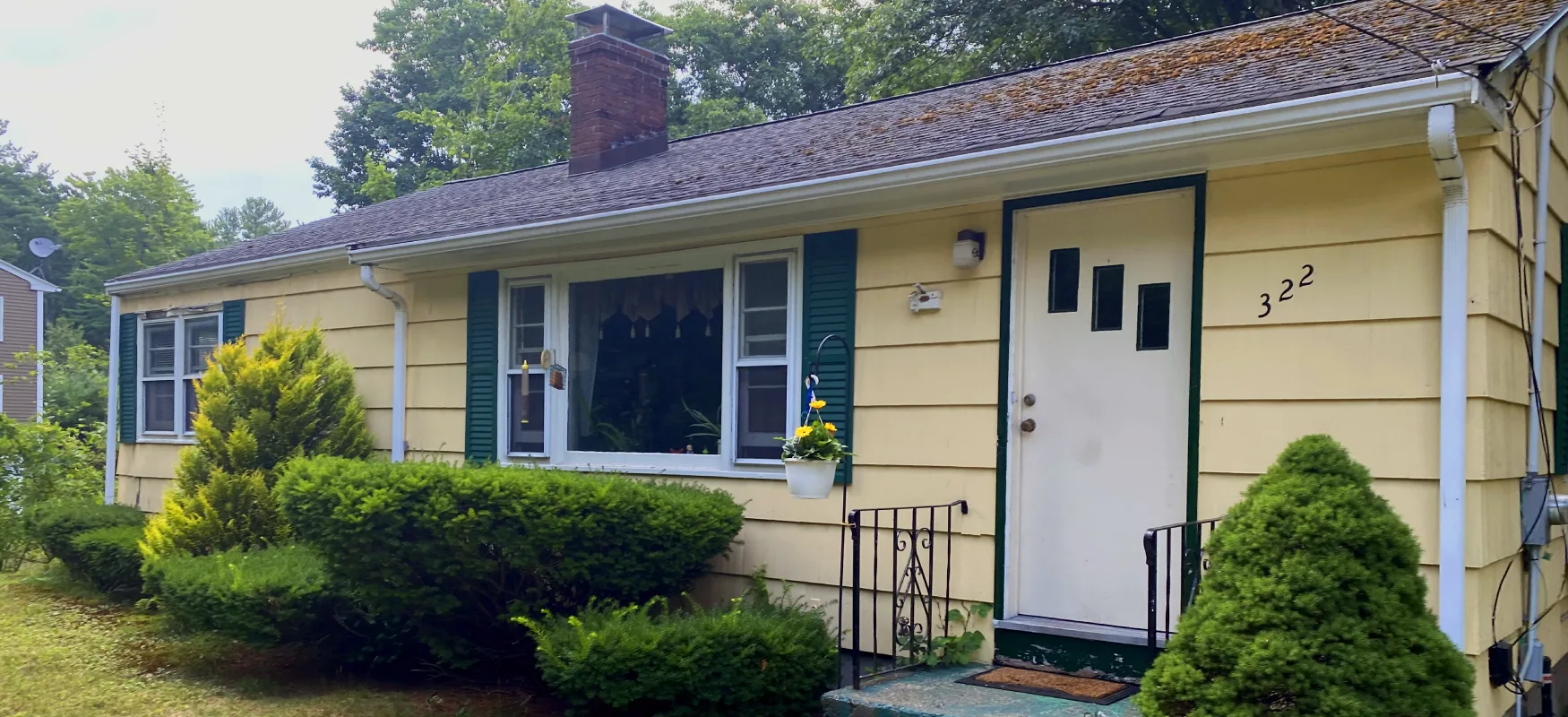The Executor’s Role in Managing Real Estate in Andover, MA
The position of Executor in relation to real estate management during the probate proceeding is critical in Andover, MA. An Executor, as appointed by the probate court, undertakes the management of an estate which involves the settling of numerous liabilities such as debts and taxes before asset distribution to beneficiaries.
In Massachusetts, the Probate Court’s authority, which must be obtained before proceeding with property sale, has to be complied with. It follows the independent appraisal option to further ascertain compliance with fiduciary obligations of the Executor.
Along with Andover’s local real estate laws, the executor must deal with local realtors who understand the property’s market value. Furthermore, they need to deal with any held mortgages or liens and work with law firms in probate, as well as other pertinent local real estate regulations.
Selling a house in Andover in a straightforward manner has been made easier by, Turning Point Home Buyers, who claim to have reliable services. Engaging with such buyers stands to simplify the burden of sales for heirs while ensuring the legal prerequisites of selling property within Andover are adhered to within the context of Andover’s intricate real estate landscape.
How Executors Manage Real Estate Sales During Probate in Andover, MA
In Andover, MA, executors are essential in handling real estate dealings, especially in selling property during probate proceedings. Their primary duty is to the estate of the deceased, which involves liquidating any debts or taxes owed prior to asset distribution to the beneficiaries.
In the selling of real estate, the executors must seek, and more often than not, obtain an independent appraisal to establish the value of the property in relation to the market. This step guarantees that all sales are achieved within the parameters of state law, as well as fiduciary obligations in the Commonwealth of Massachusetts.
Furthermore, executors must collaborate with real estate professionals who are familiar with Andover’s housing market while dealing with matters like liens or mortgages encumbering the property. Working with attorneys to respect state probate requirements and local sale policies is equally important with regards to the sale of the properties. If you’re looking to sell your home for cash in Worcester or nearby cities, exploring this option can simplify the process and help avoid delays.
When executors manage these responsibilities, they are able to oversee the sale in a manner that allows the beneficiaries to collect their inheritance without complication.
What Does an Executor of a Will Do in Massachusetts
In Massachusetts, an executor is responsible for the effective administration and closure of an estate through probate in Andover, which may include complex required actions like selling a house. An executor needs to perform the following activities: check the will to auction the Andover property to see if there is a particular requirement stated in the will, and check whether Andover real estate regulations align with granting the auction legal permissibility.
As per probate regulations, the executor must open the estate’s bank account and inform all heirs and other signers so they can withdraw money, if there is any, accruing interest. They should also ensure they follow the directives post-mortem, consisting of asset monetization, estate debt payment, and achievement of defined goals to execute estate division. Isabella had put in place pre-death pragmatically, achieving the required tasks put in place post-mortem.
To ensure that the process of the sale is legally compliant and does not raise any issues, court approval might be required beforehand. An executor, in these situations, needs to meticulously maintain documentation in order to preemptively defend against legal claims from heirs. If you’re looking to sell your home for cash in Boston or nearby cities, a hassle-free solution can simplify the process with no complications.
The Role of an Executor in Managing Estate Affairs in Massachusetts
An executor in Massachusetts is important in an estate’s settlement, especially when real estate is concerned, like a house sale in Andover. The first step given the will is to file it with the probate court, commence the probate process, and ensure that all components of the estate, including properties, are identified and appraised.
It is critical to inform all beneficiaries and creditors, as well as clear any outstanding debts and taxes. Thereafter, the rest of the estate will be divided according to the instructions provided in the will. If selling a property is necessary, the executor must adhere to state and local real estate regulations which in some cases may include obtain approval from the Court for the sale.
Throughout the entire estate settlement process, Executors need to keep comprehensive records of every action taken and every transaction made. This protects legal compliance as well as shields the executor from possible disputes among the beneficiaries.
If you’re an executor looking for a quicker and smoother sale, Turning Point Home Buyers is a reputable home buyer in the Andover area. Specializing in purchasing properties as-is, they help executors avoid hassles and delays, ensuring a quick and smooth transition for the beneficiaries.
Key Insights: Responsibilities of a Will Executor in Andover, MA
One of the most challenging tasks for a will executor is managing the sale of the estate property, especially in a competitive market like Andover, MA. Knowing the responsibilities ensures that all aspects are handled systematically and optimally.
- Asset Identification & Appraisal: To guarantee that the fair market value is set, executors need to correctly determine and value such estate assets as real property.
- Local Market Knowledge: Working with local real estate professionals based in Andover assists in understanding the peculiarities of the area’s housing market.
- Legal Compliance:It is the job of executors to prepare and maintain all legal documents per the probate law of Massachusetts.
- Buyer Coordination & Negotiation: Effective communication with buyers, along with proficient negotiation, greatly contributes to achieving a successful sale.
- Debt & Tax Management: Before making distributions to beneficiaries, executors should settle all debts and taxes associated with the estate.
- Fiduciary Duty: Guaranteeing accuracy and equity at each step maintains the rights of all beneficiaries and secures all legal requirements.
Executors of wills can effectively simplify property sales in Andover so that the estate is settled and the beneficiaries receive their dues, all while remaining compliant with state laws, organized, and informed.
FAQS
Can an executor sell property in Massachusetts without court approval?
In Massachusetts, an executor must usually go to court for permission to sell property unless the will contains an explicit power of sale clause. This is more likely to occur if there are conflicts among the heirs or general instructions in the will are vague.
What responsibilities does an executor have when selling property in Andover, MA?
An executor needs to be sure that the property undergoes appraisal, marketing, and sales processes that align with the sought value while complying with probate regulations. Furthermore, they must ensure that interactions with all the participants in the trust or will are precise and correspond adequately with the documentation created in the course of the processes performed.
Can an executor legally sell property in Andover, MA?
Yes, an executor may sell property located in Andover after obtaining probate court orders for stewardship over the estate. They are required to comply with Massachusetts probate statutes and retain proper regard for the interests of the estate’s beneficiaries.
What steps must an executor take before selling estate property?
Court approval is needed for the executor as they must retain a local realtor to ensure proper marketing and selling of the property. They also need to resolve all conflicts of interest with regard to debts associated with the property prior to the sale.
How Long Can an Executor Take to Settle an Estate in Massachusetts?
Usually, an executor takes about 9 months to 1 year to settle an estate in Massachusetts. This duration varies based on the specific issues that may arise within the assets and complexities of the estate. Other complications, such as conflicts among heirs or problems with selling a house, also affect time.
Can the sale of property slow down the estate settlement process?
Yes, selling an asset might complicate matters. Property has to be sold in a particular way, and there may be numerous legal, practical, and cash-based hurdles that stand in the way. Executors need to work through the court system and take care of the outstanding obligations or tax liabilities before they can proceed with the sale.
How Long Can an Executor Withhold Money From a Beneficiary?
An executor may retain monetary distributions until all debts of the estate, taxes due, and legal fees incurred are paid, which might be several months to over a year. The selling of real estate as part of the estate may greatly add to the complexity, which further prolongs the timeline.
Can beneficiaries expect regular updates on the estate’s progress?
Yes, beneficiaries may receive updates regarding the progress of the estate, including updates on property sales, on a regular basis. Transparency should be maintained by the executors in all matters of difficulty or delay concerning the settlement in question.
If you’re an executor of a will and need to sell a property quickly, Turning Point Home Buyers is here to help. We offer fair cash offers, handle all the details, and ensure a hassle-free sale. Whether you’re managing an estate or dealing with probate, we make the process seamless. Ready to sell or have questions? Contact us at (978) 644-0366 for a no-obligation offer. Get started today!

